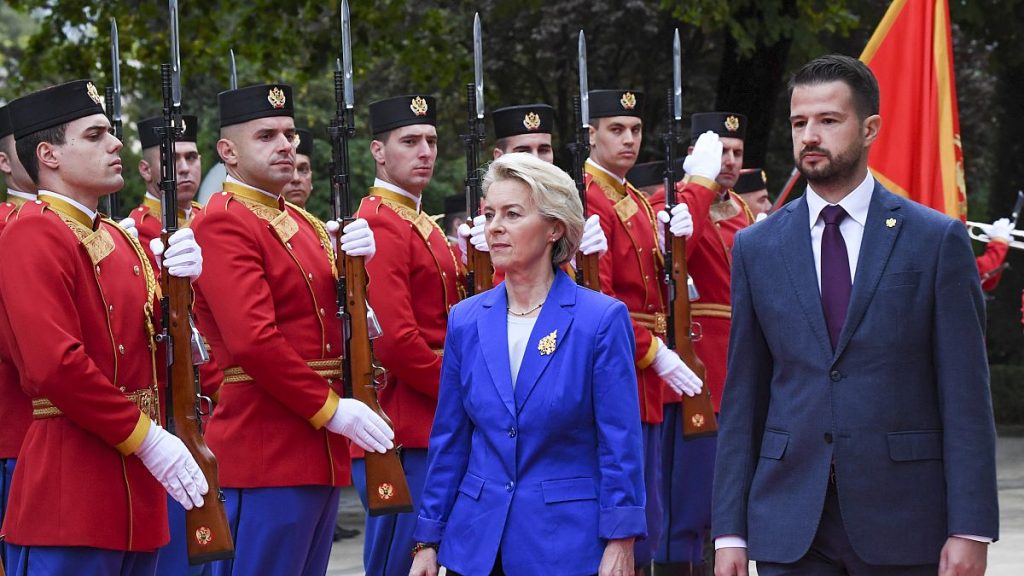Montenegro’s President, Jakov Milatovic, has articulated his vision for his country’s EU accession, emphasizing the crucial interplay between democratic progress and geopolitical considerations. He outlines four distinct scenarios for candidate countries navigating the EU accession process, highlighting both the opportunities and potential pitfalls that lie ahead. Milatovic, drawing on his background as an economist, frames the discussion with a pragmatic approach, recognizing the complexities and challenges inherent in this transformative journey. His analysis serves as a call for both candidate countries and the EU to prioritize genuine democratic reforms and institutional strengthening as the bedrock of successful integration.
The first two scenarios depict contrasting outcomes rooted in the candidate country’s internal progress. One path leads to outright failure due to a lack of democratic and institutional development, highlighting the crucial role of internal reforms. The alternative, and arguably more insidious path, involves a candidate country successfully implementing the necessary democratic reforms and building strong institutions, yet still facing rejection from the EU. Milatovic warns that this scenario can lead to disillusionment and a reversal of democratic gains, undermining the very progress that was achieved. This highlights the importance of clear communication and consistent application of accession criteria by the EU.
The third scenario introduces the complex dynamic of geopolitical considerations. In this case, a candidate country might be granted membership despite insufficient democratic progress, driven by strategic interests or external pressures. Milatovic cautions against this approach, arguing that it undermines the core values of the EU, such as the rule of law and effective governance. He further suggests that such a move could inadvertently benefit external adversaries seeking to influence the EU from within, potentially destabilizing the bloc and eroding its credibility. This scenario underscores the tension between geopolitical pragmatism and the commitment to democratic principles.
The fourth and ideal scenario, according to Milatovic, involves a virtuous cycle of democratic progress and eventual accession. In this scenario, the candidate country leverages the accession process as a catalyst for genuine democratic reforms, strengthens its institutions, depoliticizes its public administration, fosters a free media environment, and prioritizes sustainable economic development. This holistic approach ensures that the country is well-prepared to integrate into the EU, both politically and economically. This scenario presents a win-win situation, where the candidate country benefits from enhanced stability and prosperity, while the EU gains a strengthened and committed member.
Milatovic unequivocally identifies this fourth scenario as the desired path for Montenegro, expressing optimism about achieving EU membership by 2028. He cites widespread public support for EU integration, with over 80% of the population favoring membership, and a broad political consensus across parties committed to pursuing this goal. This demonstrates a clear national commitment to the process, which is crucial for navigating the complexities and challenges of accession. However, the 2028 target remains ambitious, requiring sustained effort and continued commitment to reforms.
Milatovic’s analysis offers a valuable perspective on the multifaceted nature of EU enlargement. He emphasizes that successful accession requires not only fulfilling technical requirements but also a genuine commitment to democratic values and institutional robustness. He warns against the dangers of prioritizing short-term geopolitical gains over long-term stability and adherence to core principles. His vision for Montenegro’s accession, centered on a comprehensive approach to democratic development, serves as a model for other aspiring EU members, emphasizing the transformative potential of the accession process when undertaken with sincerity and dedication. The ultimate success of this endeavor, however, will depend on the consistent application of accession criteria by the EU and the unwavering commitment of Montenegro to implement necessary reforms.

